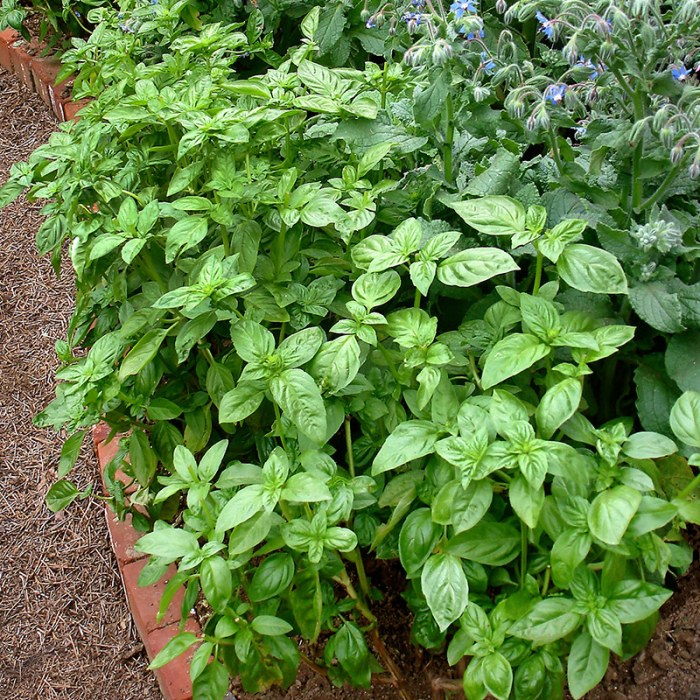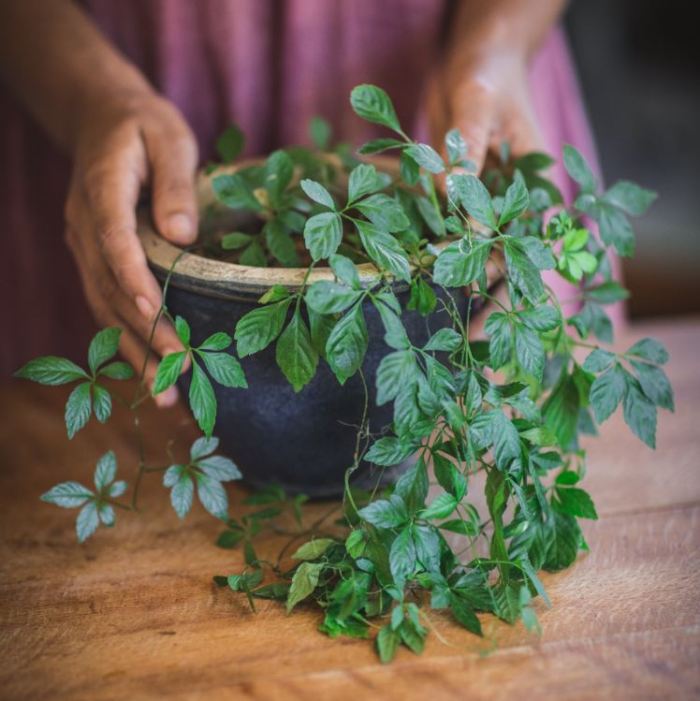Herb of immortality – the medicinal plant Jiaogulan that have an even stronger effect than ginseng
In China, it is called “herb of immortality”. Also known as Jiaogulan, this climbing plant is valued as extremely healthy and is becoming increasingly popular here in Europe. What distinguishes this medicinal plant, how it is properly cared for, and how you can enjoy it, we will tell you today in this article.
Dandelions – not an annoying weed, but a medicinal plant in your garden
Why is Jiaogulan called “herb of immortality”?
The home of Jiaogulan (Latin Gynostemma pentaphyllum) is Southeast Asia. The plant thrives and is also widely used in countries such as India, Thailand, Japan, and Vietnam. It has also been grown in Europe since the mid-20th century. It got its name mainly in connection with the southern Chinese province of Guizhou.

Most people in China live there who are over a hundred years old. For a long time, scientists have been investigating what is supposed to be the cause. After factors such as genetics and climate have disappeared, it is found that regular tea consumption should be the main cause of long life expectancy. People in this region of Asia have always been drinking Jiaogulan tea. They say that the plant works just like ginseng, only much better and stronger.
The numerous healing effects of Jiaogulan
The herb of immortality belongs to the pumpkin family and, according to traditional Chinese folk medicine, is one of the ten most effective and healthiest plants for the human organism. This is mainly due to its valuable ingredients such as saponins, flavonoids, polysaccharides, trace elements such as zinc, magnesium, and iron as well as the many essential amino acids. No wonder that Jiaogulan has such a strong immune-stimulating effect. The plant is also considered to be an effective adaptogen, which reduces oxidative stress and has a balancing effect on body and soul. In addition to the many positive properties of the medicinal plant, there is also the pronounced anti-aging effect and the anti-carcinogenic effect. Jiaogulan is also considered to balance hormone levels, blood sugar levels, and blood pressure.
7 secrets for planting and cultivating rosemary in pots and your garden
How do you properly care for the herb of immortality?
It is a relatively robust and easy-care plant. Nevertheless, there are a few things to consider. Jiaogulan loves sunny and partially shaded places in the garden and can withstand temperatures down to minus 15 degrees Celsius in winter. If you want to grow the Far Eastern herb in a tub, it would be advisable to place it in the conservatory or in a room, at temperatures between 10-15 degrees. The optimal soil is sandy to loamy as well as rich in humus and neutral or slightly acidic. The plant does not like waterlogging, but should not dry out, a moderate watering would be absolutely correct. The propagation works best with cuttings or by dividing the roots. Do not forget that Jiaogulan is a climbing plant and always needs tendril support such as a frame or grid when growing.

Pelargonium graveolens: a plant with aromatic & healing properties on your balcony and garden
How is Jiaogulan consumed?
In Asia, the herb of immortality is not only drunk as a tea but is also generally enjoyed as food. If you want, you can put the fresh leaves of the plant in salads or smoothies, for example, or prepare them like spinach in many dishes. The slightly sweet taste, especially with fresh, younger leaves, is reminiscent of licorice. The herb, on the other hand, has a bitter bitter taste and is often sweetened in tea with honey or agave syrup. Basically, only the leaves of the plant are used, both medicinally and culinary. The small, blackberries, the stems, and the roots are usually inedible.














Images via: Pinterest







1 comment
[…] It is a delightfully fragrant herb native to the Mediterranean region. In the Middle Ages, this herb was used for love spells. While a majority of us enjoy the aroma of this fresh plant, most people […]
Comments are closed.